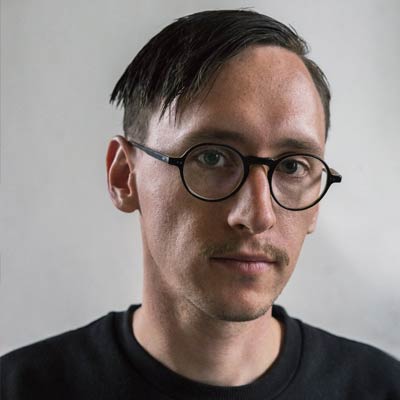Course Overview
During this course students will use various CAD (computer-aided design) programs to make wearable objects that will be 3D printed, CNC and laser cut. Students will learn ZBrush, Rhino, and Tinkercad to generate jewelry and other wearables to be printed in SLA (resin) and Nylon. Everything from rings, necklaces, bracelets, broaches, to masks and larger. Through these methods students will get hands on knowledge of how 3D printers, lasers and CNC machines work and how to digitally sculpt for machine output.
All students who successfully complete the course will receive a Certificate of Completion and have the opportunity to request a Syracuse University noncredit transcript.
Learning Objectives
- Learn computer-aided design
- 3D printing in SLA, PLA and Nylon (additive manufacturing)
- Laser and CNC (subtractive manufacturing)
- Digital sculpting with ZBrush, Rhino and Tinkercad
- Practices for finishing wearable objects in PLA, SLA, Nylon, Foam, Wood
- Digital design practices for practical output
Course Information
Course Prefix and Number: SCN 196
Format: On Campus (at Syracuse University)
Eligibility: Students must be of rising high school sophomore*, junior or senior status – or a 2025 high school graduate.
Credit: Noncredit
Grading:
- Pass/Fail
- Residential: $4,295
- Commuter: $3,318
Program rates are subject to change and will be approved by the board of trustees. Discounts and scholarships are also available.
Program Information
Summer College – On Campus: Experience what college is really like: take a college-level course, live in a residence hall, have meals with friends in a dining hall, and participate in activities and events on campus.
Course Dates and Details
| Program | Course Dates | Synchronous Class Time (Eastern Time) | Credit/Noncredit |
|---|---|---|---|
| Summer College – On Campus | 2-Week Session I: Sunday, July 6 – Friday, July 18, 2025 | MTWThF; 9 a.m. – 5 p.m. | Noncredit |
To see if this course is ‘open,’ refer to the full course catalog.
Course Requirements
Required Supplies
Please know that any supply purchases are not included in the overall tuition fee. Students will need to budget for additional course supplies, textbooks, supply kits, etc.
- Students will need to wear proper attire to work in some shops. It is highly encouraged that students who can bring a personal laptop or iPad that can run ZBrush. A 3 button mouse.
Typical Day
Tentative Schedule
A typical day will start with presentations on artists and designers using contemporary methods of making using digital sculpting. Students will then get hands on experience with CAD programs and how digital manufacturing works. Students will then design and fabricate their own wearables.
When class is over, and on weekends, students can look forward to various Summer College – On Campus activities to meet and connect with other students! Check out our On Campus Experience page for more information!
Faculty Bio
Jeremy Tarr

Jeremy Tarr is a Technical Fabricator in the School of Architecture overseeing the woodshop and digital fabrication lab in Smith Hall. He has been working as an artist for over fifteen years and has been an instructor of record in the Visual and Performing Arts’ Studio Art program for the past 7 years. Tarr has taught metal and welding, woodworking, contemporary sculpture, digital sculpture, core studio, and hosted the department’s Visiting Artist Lecture series. He has exhibited domestically and internationally in Pittsburgh, Berlin, NYC, LA, and most recently in Barga, Italy. He has been a guest critic for BFA thesis candidates at Cornell University and given artist lectures at James Madison University, VA and York College of Pennsylvania, the latter of which accompanied a solo exhibition and a publication.
Tarr has been an artist in residence at the Axel Haubrok Fahrbereitschaft, DE, Mobile AIR, DE, Governors Island, NYC, and recently at the Digital Stone Project in Gramolazzo, Italy.
Tarr’s work is informed by the landscape of the Appalachian Rust Belt and its mythologies. At the core of his practice is the presence of the empty, the physicality of the immaterial, and the complexities of unknowing as a means of liberation.
